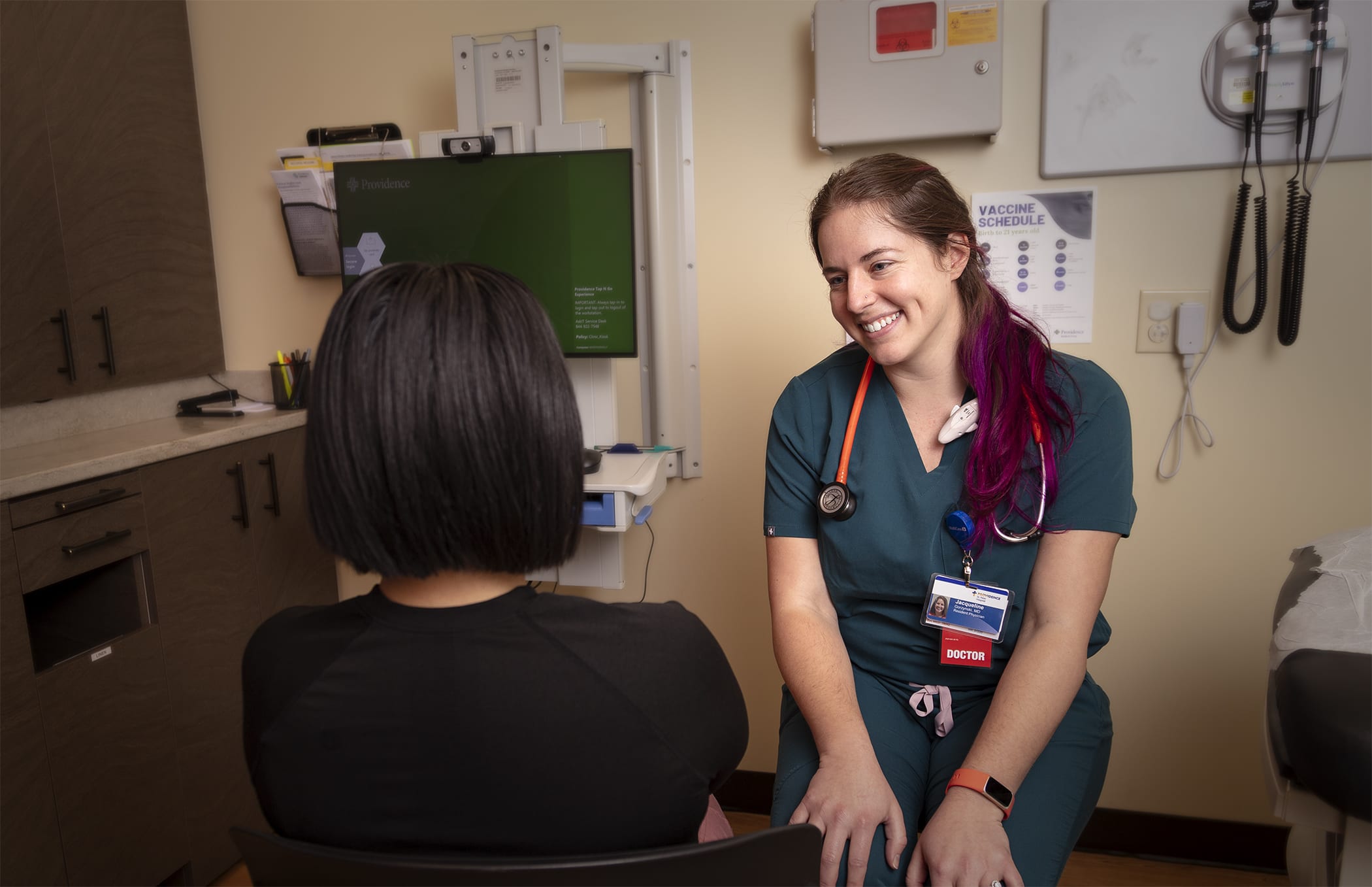Residency programs fill needs, help develop providers of the future

In 2023, Providence Swedish invested $11.7 million in the development of health professionals in South Puget Sound. There are currently 21 residents at St. Peter Family Medicine Residency Program, nine in the Chehalis Family Medicine Rural Residency Program and six in the St. Peter Summit Pacific Rural Family Medicine Program.
The residents and interdisciplinary faculty steadfastly serve vulnerable populations, including those in rural, medically underserved areas. Residents and faculty work diligently to address health inequities, reduce healthcare disparities and improve patient outcomes.
These residents care for more than 15,000 patients annually in South Puget Sound, the vast majority of whom are uninsured or underinsured and might not otherwise be able to find a provider.
The St. Peter and Chehalis residents also participate in numerous programs supporting vulnerable individuals, including:
- Mobile Outreach Program: St. Peter Family Residency has a collaborative relationship with the Providence Street Medicine Team and Mobile Clinic Unit and with Olympic Health & Recovery Services’ Homeless Outreach and Stabilization Team which allows primary care providers to bridge the gap between unhoused individuals and the many barriers that prevent them from accessing traditional primary care models. This work helps train the future primary care workforce to engage more effectively with stigmatized and marginalized populations and to understand the unique health challenges of unhoused patients and the community resources that exist to help them.
- Adolescent Obstetrics: For 25 years, St. Peter Family Medicine has operated a prenatal care program for adolescent parents that incorporates group-based, resident/student-led education in pregnancy and newborn care and facilitation of peer support for this high-risk population.
- Substance Use Disorder Treatment: Residents rotate twice a month to support a Med First Clinic and identify patients for the Chehalis Family Medicine Substance Use Disorder Treatment Clinic. These patients then receive treatment at Chehalis Family Medicine for substance use/misuse and are also enabled to establish care with a primary care provider for all other medical needs. Residents also partner with the Lewis County Drug Court to help individuals with drug offenses through their treatment plans.
- Health and Hope Free Clinic: Residents rotate at this Centralia free clinic monthly and provide culturally competent care for those with language barriers.
For more information on these residency programs, go to their websites:
- St. Peter Family Medicine Residency: www.providence.org/stpeterfm
- Chehalis Rural Training Program: www.providence.org/chehalisrtp


